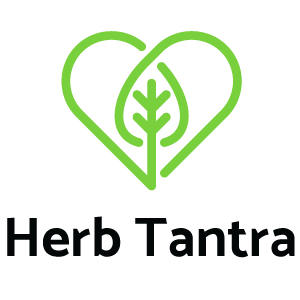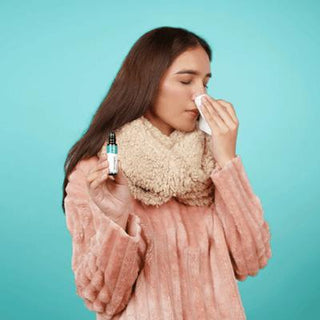Silky, frizz free, smooth hair, styled effortlessly into a blow dry – that’s what we all call “#hairgoals” right?
Well surprise! Products that you use on your scalp can easily seep into your head and cause some serious damage to your health in the long run. Our skin being the largest organ is the body is easily susceptible to damage just like our other body parts.
However, this aspect is mostly overlooked by consumers, while getting trapped in the endless loop of carefully crafted, “shiny” hair commercials. More often that not, these “over the counter” shampoo, conditioner, hair colour and serum bottles contain toxins which might make you feel good after a quick shower, but over time erode/disrupt the natural sebum production of your scalp.
Scalp Folliculitis/Scalp Pimples, Itching, Inflammation, Hair Loss, Excessive sebum production, Hair falling out in clumps, dry and frizzy hair being some of the most common symptoms.
On a more advanced level, issues like foggy brain, difficulty in breathing, concentration and forgetfulness/beginner’s Dementia can be linked back to our shampoos and conditioners which adorn our bathroom shelves.
Combatting this issue requires making a conscious choice when it comes to our health and wellness. In this blog, we dive into the problem and effective ways on how to solve it. Let’s get started.

1. Read the “Label” thoroughly –
One of our most loved product when it comes to “hair convenience” is a Dry Shampoo. Whether travelling during chilly winters where washing your hair is simply an inconvenience or looking for a quick fix to perk up your greasy hair; a dry shampoo is something which always comes handy when we want to give our hair some volume or soak up some excessive oil.
However, reading the product “label” is extremely crucial in determining what goes on your scalp. Toxins like Dry Aerosol shampoo formulas may include benzene, a poisonous substance which is often linked to cancer.
Benzene is also known as a Carcinogen which makes your scalp prone to chemical infiltration. This in turn can irritate, erode and clog your hair pores. It can also cause extreme flaking, dryness, loss of hair and ultimately leukaemia i.e., cancer.
When a dry shampoo is sprayed, the petroleum-based propellent ingredients, or gas that turns to liquid under pressure of an aluminium aerosol can, contains trace amount of benzene.
A more natural alternative to this is to rub some cornstarch/cornflower to get the same “dry-shampoo” effect without harming your body.

2. Choose natural alternatives –
One of the best ways to ensure that your hair and scalp stays healthy is by ditching artificial and synthetic shampoos/conditioners and switching to natural alternatives.
The answer to most of our everyday problems lies in the heart of nature itself. Ditch the chemical overload and embrace the herbal magic of DIY shampoos and conditioners with ingredients like reetha, amla, and shikakai.
These wonders from nature aren't just good; they're fantastic for your hair and scalp. Imagine a shampoo that not only cleans but also nourishes, leaving your hair shiny and strong. Reetha cleanses and doesn't strip away your hair's natural oils. Amla, packed with Vitamin C, promotes growth and vitality, while shikakai, the ancient beauty secret, adds lustre and bounce.
These herbs are like nature's recipe for happy hair! Let’s take a look at how to make them at home to reap maximum benefits.
- Amla (Gooseberry) and Shikakai Shampoo – Start by boiling 5-6 fresh Amla, 5-6 Shikakai pods, and 1 tablespoon of Reetha (optional, for added foam) in 2 cups of water until the mixture is reduced by half. Let it cool, then strain the liquid to remove any solid particles. Store the liquid in a clean bottle. To use, wet your hair thoroughly, shake the homemade shampoo well, apply it to your scalp and hair, gently massage, leave it on for a few minutes, and then rinse thoroughly with water.
- Reetha (Soap Nut) Shampoo – Begin by taking around 10-12 Reetha nuts and removing the seeds. Crush the nuts or break them into smaller pieces. Boil it in 2 cups of water until the liquid reduces to half its original quantity. Let it cool, and then strain the mixture to separate the liquid from the solid residue. Pour the strained liquid into a clean bottle. To use, wet your hair thoroughly, shake the homemade shampoo well, apply it to your scalp and hair, gently massage, leave it on for a few minutes, and then rinse thoroughly with water.
- Rice Water – Making Rice Water shampoo at home is easy and highly beneficial for your hair. To prepare, start by rinsing 1/2 cup of rice (white, brown, or any variety) thoroughly to remove impurities. Place the rinsed rice in a bowl and cover it with 2 cups of water. Let it soak for 30 minutes, stirring occasionally. After soaking, strain the rice water into a clean bowl or bottle. It's ready to use! When washing your hair, pour the rice water onto your scalp and hair, gently massage for a few minutes, and then rinse thoroughly with plain water. Rice water is rich in vitamins and minerals, making it excellent for promoting hair growth, enhancing shine, and improving hair texture.
- Apple Cider Vinegar and Water Shampoo – Start by mixing 1 part apple cider vinegar with 3 parts water. For example, if you're using 1 cup of apple cider vinegar, mix it with 3 cups of water. Shake the mixture well to ensure its thoroughly combined. After shampooing your hair as usual, pour the diluted apple cider vinegar solution onto your scalp and hair. Gently massage it into your scalp for a minute or two, allowing the mixture to spread evenly. Then, rinse your hair thoroughly with water. Apple cider vinegar helps balance the pH of your scalp, making it a natural conditioner and leaving your hair soft, shiny, and revitalized. It's a fantastic DIY alternative for promoting healthy hair and scalp.
Make the switch, and let your hair revel in the goodness of these herbal wonders.

3. Limit the use of “Hot Hair Styling” tools –
It's essential to recognize the potential risks associated with excessive use of hot hair styling tools like straighteners and dryers.
Beyond the visible damage to your hair and scalp due to moisture depletion and cuticle damage, these tools may contain harmful substances with endocrine-disrupting effects.
Studies have linked such substances to serious health concerns, including uterine cancer. This underscores the importance of exercising caution and limiting the frequency of using these tools.
While we all appreciate the allure of perfectly styled hair, it's crucial to prioritize the long-term health of your hair and body.
Embracing natural textures and minimizing heat exposure can contribute significantly to the overall health and vitality of your hair.

4. Avoid chemical colours for the hair –
Let's talk about hair colours and the not-so-rosy truth behind them. Ever heard of paraphenylene-diamine? It's a chemical lurking in many hair dyes, and it's not friendly.
These colours might promise a stunning transformation, but they come at a cost. Paraphenylene-diamine, among other chemicals, can lead to serious health issues like rhabdomyolysis, laryngeal edema, severe metabolic acidosis, and acute renal failure.
Sounds scary, right? Your hair might look fabulous, but your health should always come first. So, why not embrace natural dyes like henna a bit more and limit the use of these potentially harmful chemicals?
Your hair deserves to shine, but not at the expense of your well-being!
5. Conclusion –
In the pursuit of beauty, it's vital to prioritize our well-being. Whether it's the sizzle of hot styling tools or the allure of vibrant hair colours, being aware of the potential risks is key.
Our hair is a crown we wear every day, and it deserves to be treated with care and respect. Let's choose healthier alternatives and limit the use of harmful chemicals. After all, the best kind of beauty is the one that doesn't compromise our health. So, here's to healthier choices, radiant hair, and a more confident you!




